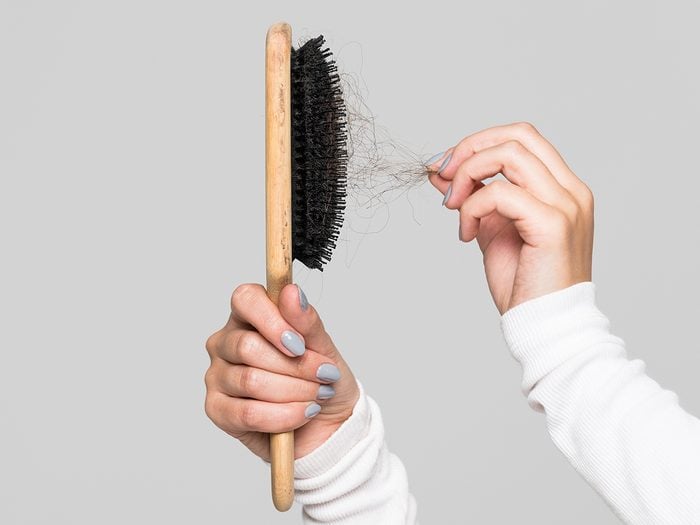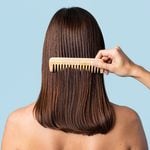Why You Should Tell Your Derm About Hair Loss

Your dermatologist isn’t just a skin pro, they can also help you with your locks. Here’s how.
Noticing more hair in your brush or drain, or seeing your scalp starting to peek through your ’do? You’re not alone—about 40 percent of women experience hair loss by age 50. But don’t sound the alarm just yet: There are lots of explanations behind hair loss. It might be a response to a new medication, to stress (likely courtesy of the pandemic), to giving birth or even just to a change in the season. But we can also point the finger at genetics and certain health conditions, such as a thyroid disorder or a sex-hormone imbalance.
If the problem doesn’t resolve after a few months and it’s bothersome, you may want to consider interventions. Luckily, dermatologists have a few treatment options that range from easy-to-apply topicals to more invasive procedures.
If the hair loss is caused by inflammation, including cicatricial (scarring) alopecia, a topical cortisone cream and injections into the scalp can help stimulate hair growth, says Dr. Heather Woolery-Lloyd, a Miami-based dermatologist and faculty member of Canada’s Skin Spectrum Summit.
Non-inflammatory hair loss includes androgenetic alopecia and female pattern baldness, which “generally starts at the top of the head as well as the frontal areas,” says Dr. Marlene Dytoc, an Edmonton-based dermatologist. It can be treated with topical minoxidil, also known as Rogaine, “which has been proven to retain hair and sometimes grow new hair,” says Woolery-Lloyd. The topical version is available over-the-counter and the oral medication by prescription.
Depending on the cause of hair loss, dermatologists also recommend platelet-rich plasma (PRP) therapy, in which your own blood is injected into your scalp to stimulate hair growth. Another option is low-level light therapy that’s emitted from a helmet you can wear at home, which has been shown to boost hair density.
So what about all those shampoos and conditioners on the market that promise to make your hair grow? “If my patient wants to use them because they think it works, I have no problem with that,” says Woolery-Lloyd. But she won’t recommend these products unless the ingredients have been scientifically proven to work.
The best thing you can do to address hair loss is talk to your dermatologist. As Woolery-Lloyd says, “If we catch it early, treatment options are better.”
Next: The Best Skin Care Routine for Your Age, According to Dermatologists




